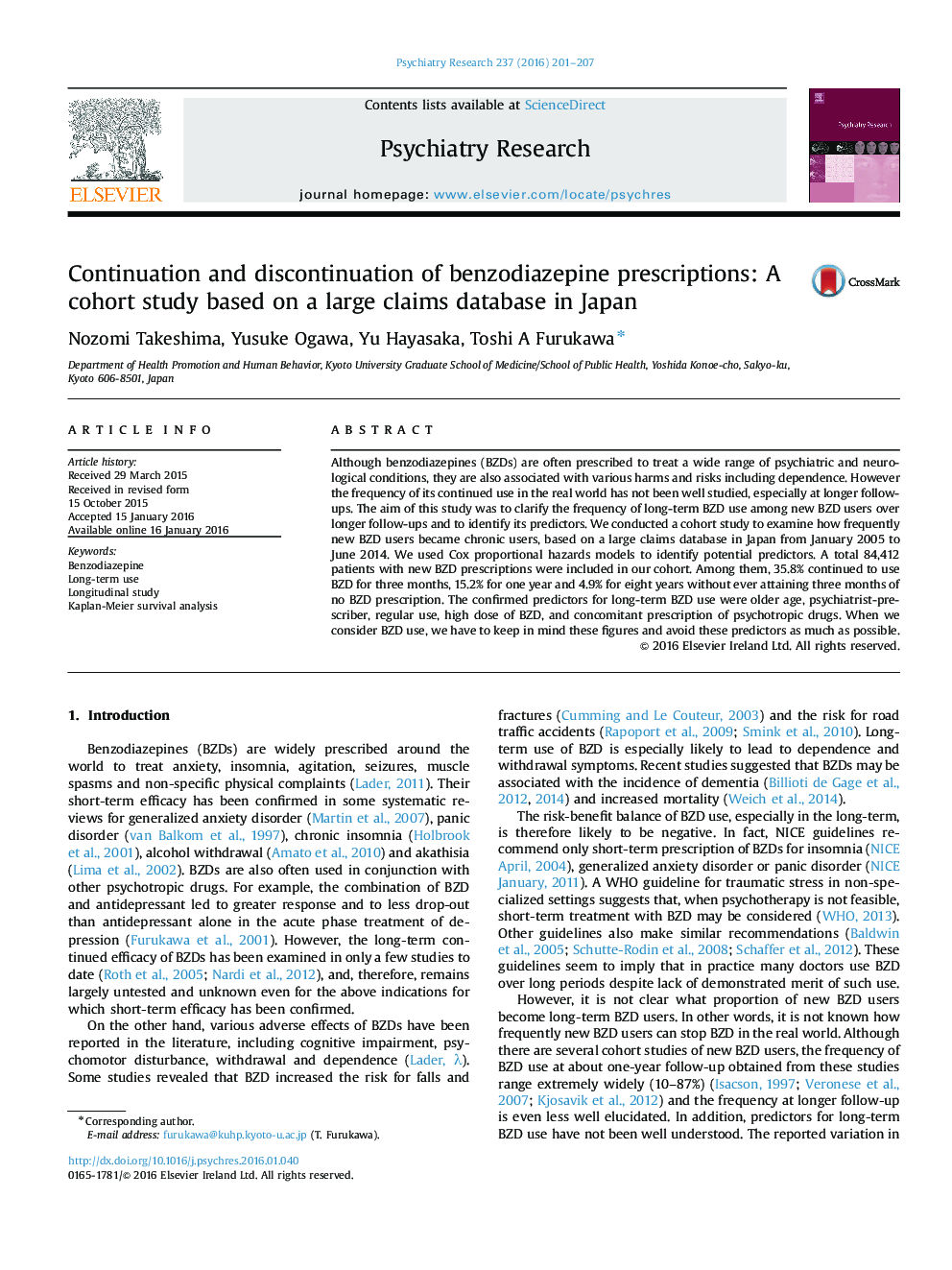| کد مقاله | کد نشریه | سال انتشار | مقاله انگلیسی | نسخه تمام متن |
|---|---|---|---|---|
| 333114 | 545902 | 2016 | 7 صفحه PDF | دانلود رایگان |
• Among new BZD users, 15.2% continued to use BZD for one year.
• Among new BZD users, 4.9% continued to use BZD for eight years.
• Older age was the confirmed predictor for long-term BZD use.
• Psychiatrist-prescriber was the confirmed predictor for long-term BZD use.
• Other predictors include regular use, high dose of BZD and psychotropic drugs.
Although benzodiazepines (BZDs) are often prescribed to treat a wide range of psychiatric and neurological conditions, they are also associated with various harms and risks including dependence. However the frequency of its continued use in the real world has not been well studied, especially at longer follow-ups. The aim of this study was to clarify the frequency of long-term BZD use among new BZD users over longer follow-ups and to identify its predictors. We conducted a cohort study to examine how frequently new BZD users became chronic users, based on a large claims database in Japan from January 2005 to June 2014. We used Cox proportional hazards models to identify potential predictors. A total 84,412 patients with new BZD prescriptions were included in our cohort. Among them, 35.8% continued to use BZD for three months, 15.2% for one year and 4.9% for eight years without ever attaining three months of no BZD prescription. The confirmed predictors for long-term BZD use were older age, psychiatrist-prescriber, regular use, high dose of BZD, and concomitant prescription of psychotropic drugs. When we consider BZD use, we have to keep in mind these figures and avoid these predictors as much as possible.
Journal: Psychiatry Research - Volume 237, 30 March 2016, Pages 201–207
